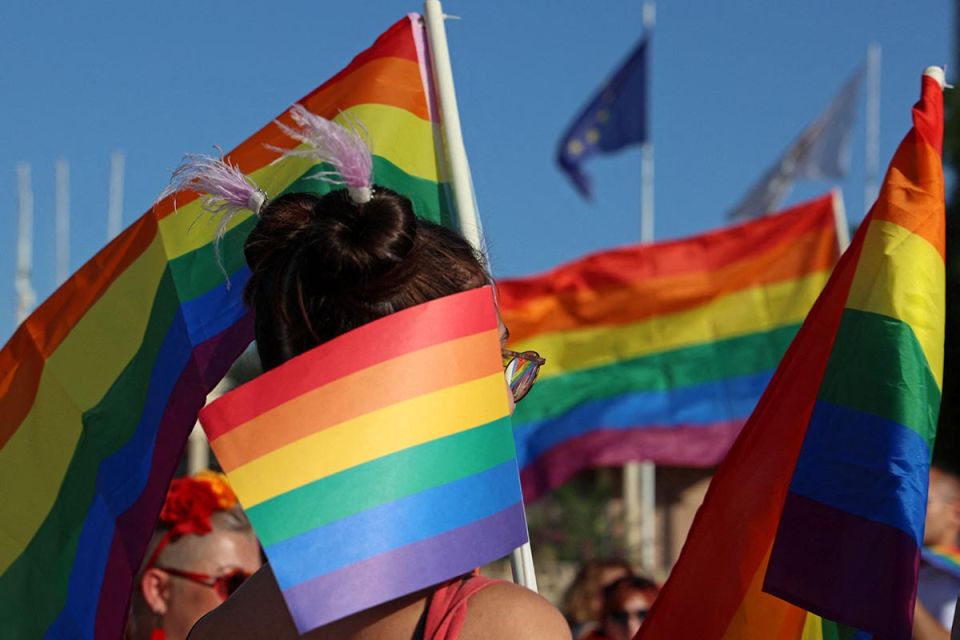This new rule requires students to use the bathrooms and locker rooms of the sex assigned to them at birth, as well as requiring a legal document such as parental approval to change the name and pronouns of minors.
Thousands of Virginia state school students stopped classes to protest in the streets against the new directives promoted by the Republican government, which withdraw all protections for LGTBQ students.
Young people shouted protests like “protect trans youth” and “trans rights are human rights.” More than 10,000 students in 98 high schools walked out of classrooms to participate in the protests, according to youth activist group Pride Liberation. Project.
The regulations, published in mid-September by the Virginia Department of Education but not yet in effect, require students to use bathrooms and locker rooms of the sex assigned to them at birth, as well as requiring both a legal document such as parental approval to change the name and pronouns of minors, among other measures.
For LGBT students, the new rules violate their rights and make schools no longer a safe space for them.
“We are losing a safe place in schools for students who do not have one at home and for whom school was the only place where they could freely express their sexuality or gender identity,” said Rivka Vizcardo-Lichter, a student at high school sophomore and student leader.
In addition to forcing students to participate in sports with people of the same gender they were assigned at birth, the new regulations prohibit teachers from “hiding” information about their child from parents and may prohibit them from receiving gender-related guidance. .
The governor of Virginia, Republican Glenn Youngkin since January, decided to change the previous guidelines, which protected the gender expression of students, alleging that they “disparaged the rights of parents” and “promoted a social and cultural transformation in schools”. .
These new measures, the students who organized the marches point out, force young LGBT people to come out in front of their families and can put some in situations of violence or discrimination.
“I have friends who are trans or who are non-binary and this will effectively expose their parents and create a dangerous situation in their homes,” said Diego Vega, who participated in one of the marches at Osbourn Park High School in Manassas.
Along with Vega, some 200 students left the classrooms around 2:00 p.m. local time (6:00 p.m. GMT) and gathered in the school parking lot with banners in favor of the LGBT community and especially transgender youth.
If the regulation is approved, which has a period of 30 days for the public to make its comments before taking effect, Diego, who uses the neutral pronoun “Elle”, fears that the teachers will not speak to him in the way he prefers.
“We trans and queer students will become the target of hate from other classmates,” he assured.
Virginia is joining a national trend; So far in 2022, more than 300 bills have been presented that point to the LGBT population in different state legislatures in the country, according to the NGO Human Rights Campaign.
This type of legislation ranges from prohibitions for young transgender women to participate in women’s teams, through restrictions on minors accessing gender reassignment treatments.
Under the former Virginia state administration, led by Democrat Robert Northon, regulations governing the treatment of trans and sexually diverse students allowed young people to use the name and pronouns that reflected their identity without having to present any evidence and required teachers to respect that decision.
In turn, it allowed students to use restrooms and facilities in a manner consistent with their gender identity. Virginia is home to some 6,200 transgender youth, according to a study by the University of California at Los Angeles (UCLA).

